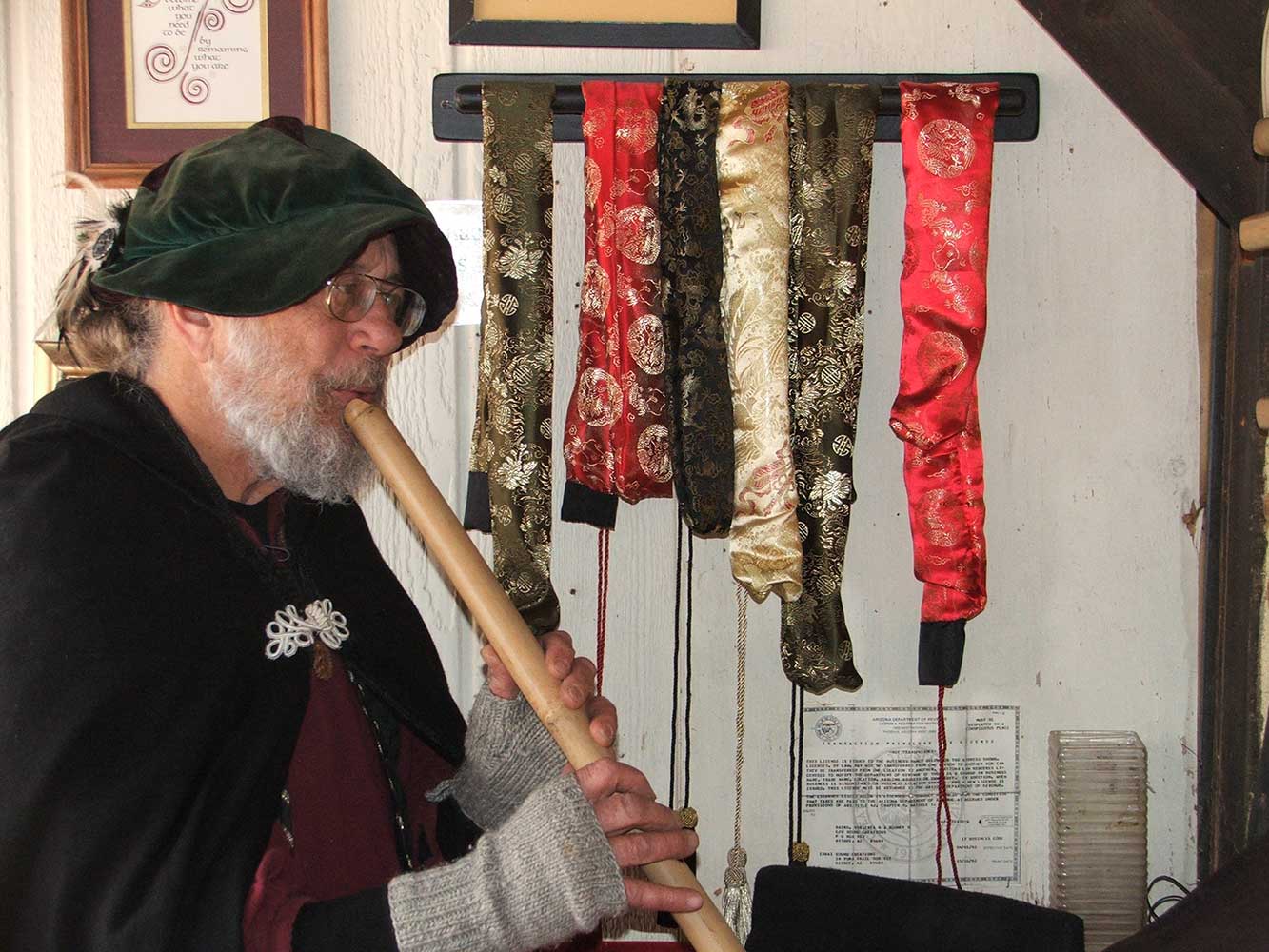Feeling bogged down by everyday stress and in search of something new to ease it?
As we dig deeper, you’ll discover that the Shakuhachi isn’t just for playing lovely tunes. It has a strong connection to the practice of meditation. Picture yourself playing this flute, breathing deeply, and drifting into a calm state. Sounds like a dream, right?
This isn’t just about relaxation, though. It could be a life-changer in our busy, at times paralysing everyday lives. The mellowing energy created by Shakuhachi has this amazing characteristic of calming anxiety, increasing productivity and giving an aura of tranquillity.
In this Bard’s Guide, we’ll walk you through how the Shakuhachi and its meditative methods could be a big help in managing the stress and worries we all face now and then. So, why not join us and explore the peaceful magic of this ancient flute? You never know, the Shakuhachi might be the solution we’ve been hoping for!
Using the Shakuhachi Flute for Meditative Practices
Meditation usually brings to mind quiet spaces and closed eyes, right? But here’s something nice to consider: when playing an instrument like the Shakuhachi can be a meditative experience too! Let’s check out how this special Japanese flute isn’t just for music but can also be a great meditation tool.
Meditation Through Music
Focus and Presence
When you play the Shakuhachi, you need to really concentrate and stay in the moment. This focus is similar to what you do in meditation. You tune everything else out and just get lost in the music, which is pretty much like practicing mindfulness.
Breathing Techniques
Playing this flute involves a kind of breathing that’s much like what you do in meditation. The deep and rhythmic breaths you take while playing help calm your mind and relax your body, just like in meditation.
What Makes It Great for Meditation?
Relaxing Tunes
The sounds from the Shakuhachi are super soothing. Its natural and earthy tones can really help you feel at peace and give you some time for self-reflection.
Simple Yet Deep
The design of the Shakuhachi is pretty straightforward, but playing it well takes some skill and understanding. This mix of simplicity and complexity makes playing it a kind of meditative journey, helping you grow and learn about yourself.
Boosting Mindfulness
Naturally Calming
Just playing the Shakuhachi is a calming experience. Its gentle music can lessen stress and anxiety, making it easier to meditate and find some tranquillity.
Looking Inward
Playing this flute can be a journey into your own thoughts and feelings. It makes you discover yourself more, leading to increased mindfulness and self-knowing.
However, shakuhachi is much more than a musical instrument – it is an avenue to mindfulness and meditation. Its outstanding features coupled with the inner, highly personal perspective of playing it make the Shakuhachi a perfect sound instrument for people looking for more self-awareness and spirituality. Whether you’re a musician with years of experience or an absolute beginner, the Shakuhachi is a fantastic instrument to help you get better at meditation.
Wrapping Up
Despite the Shakuhachi being a simple bamboo flute from Japan, we have discovered its innovative capabilities for contemplative practice. The act of performing the Shakuhachi goes beyond music; it is active mindfulness and meditation.
In addition to the melodious sounds created by deep, rhythmic breathing, a sense of peace is established within the mind that helps relieve stress even as one relaxes. The sounds of flute are very natural and calming; they create an internal state of peace conducive to meditation that helps a musician in self-growth and discovery.
This Bard’s Guide showed how Shakuhachi promotes mindfulness and self-awareness, indicating that if one would take the embracing of its meditative practices it could be an ideal approach to deal with life. Readers may be able to read about the Shakuhachi and its mindful activities as they search for their own stresses and struggles, providing a special path that will give them peace of mind.

Leave a Reply